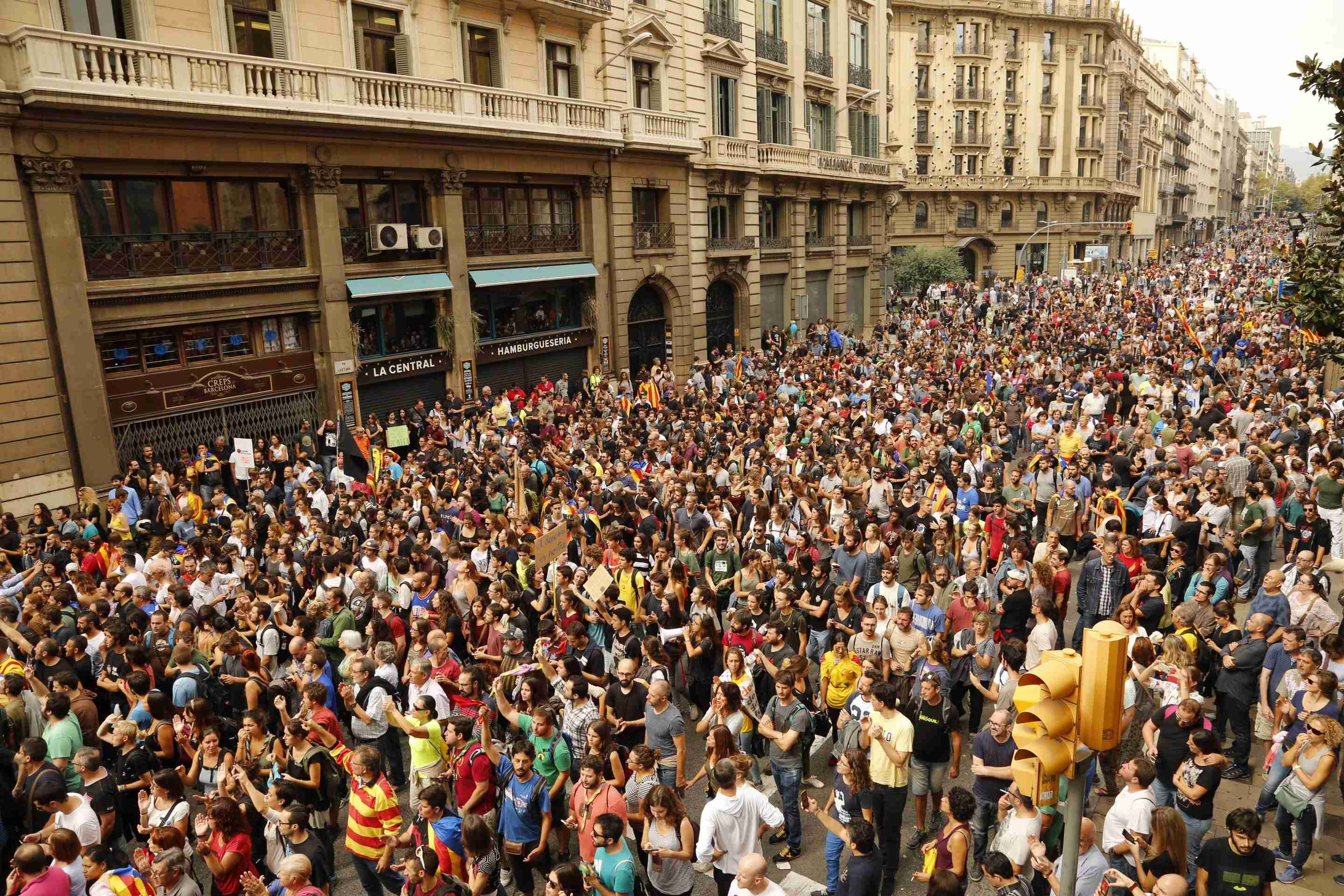21st February, from midnight to midnight. This Thursday, from Barcelona to the Pyrenees, from the Costa Brava to the Costa Daurada there will be a general strike. Whether you're in Catalonia for business or pleasure, here's everything you need to know.
Why?
The main reason for the strike is the ongoing trial of pro-independence Catalan leaders in the Supreme Court in Madrid. However, it would be illegal if that were the official reason, so organisers instead argue they are protesting against PP's labour reforms which are still in place 7 years after they were passed and for a minimum monthly wage of 1200€ and the reinstatement of Catalan social policy laws which were overturned by the Constitutional Court.
More than fifty unions and social and political organisations are supporting the strike. Notable among them are Òmnium Cultural, the ANC and the pro-independence parties. The Catalan government has suspended all public activity in solidarity. The two largest unions, however, CCOO and UGT, and political parties Cs, PP and PSOE oppose the action.
How could it affect me?
Shops, restaurants and tourist attractions could all shut, although many will make that decision on an individual basis. Activists plan to block major roads, though how many of these attempts will be successful and for how long will only be clear at the time. Similar "countrywide standstills" in 2017 also affected some train stations.
In critical areas, the Catalan government has decreed minimum services. Renfe trains within Catalonia will be running at 33% service all day. FGC trains and Barcelona's metro, trams and buses will run at 50% of normal at peak times (6:30-9:30am and 5-8pm) and 25% the rest of the day. Other transport within and between towns, including the Aerobus service linking Barcelona city centre with El Prat airport, will run at 50% of normal service. At least some 3,000 taxi drivers will also join the strike.
Essential health services are guaranteed. These include intensive care units, dialysis, neonatal and births, urgent radiotherapy and chemotherapy and any surgery that cannot be postponed. Cleaning of hospitals, ambulances and food for in patients must also be covered. Non-hospital care centres will guarantee emergency assistance during their normal hours with 25% staff. 24-hour pharmacies will remain open.
Education, however, will be notably affected. For infants and primary schools (3 to 12 years) there will be one teacher to every 6 classrooms; for special education schools (3 to 16 years), it will be 1 to every 4. Kindergartens and nurseries will run with a third of their normal staff. There will also be a third of normal staff present for lunchtime and extracurricular activities.
Other minimum services decreed include 95%+ for various areas relating to security and 50% of habitual news programming by the public media.
The demonstrations
The main protest will be in Barcelona at 6pm, running along passeig de Gràcia from Jardinets to Gran Via. There are rallies organised at the same time in Girona, Tarragona, Lleida and Tortosa. At midday, there will be other gatherings, these are to include the presence of political parties and social entities. In Barcelona, this will take place in plaça Universitat. A students' march will start there too. In the rest of Catalonia, they will take place in front of town halls.

